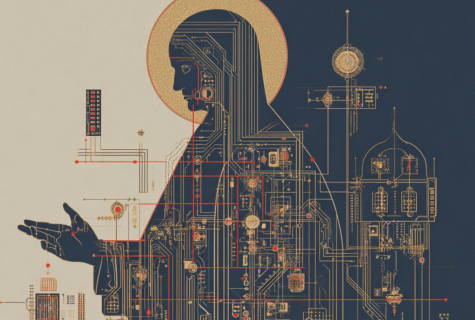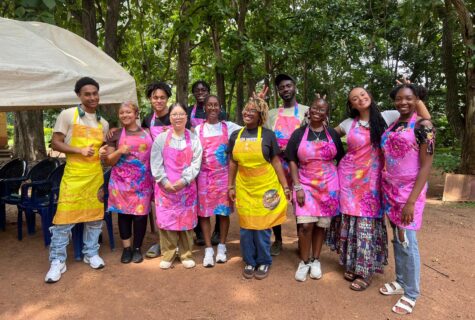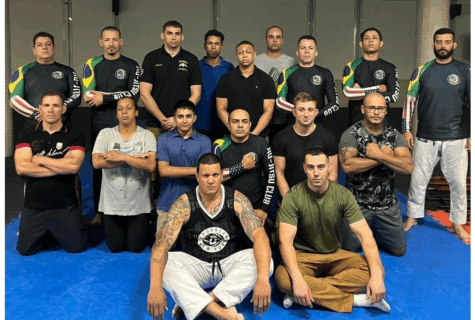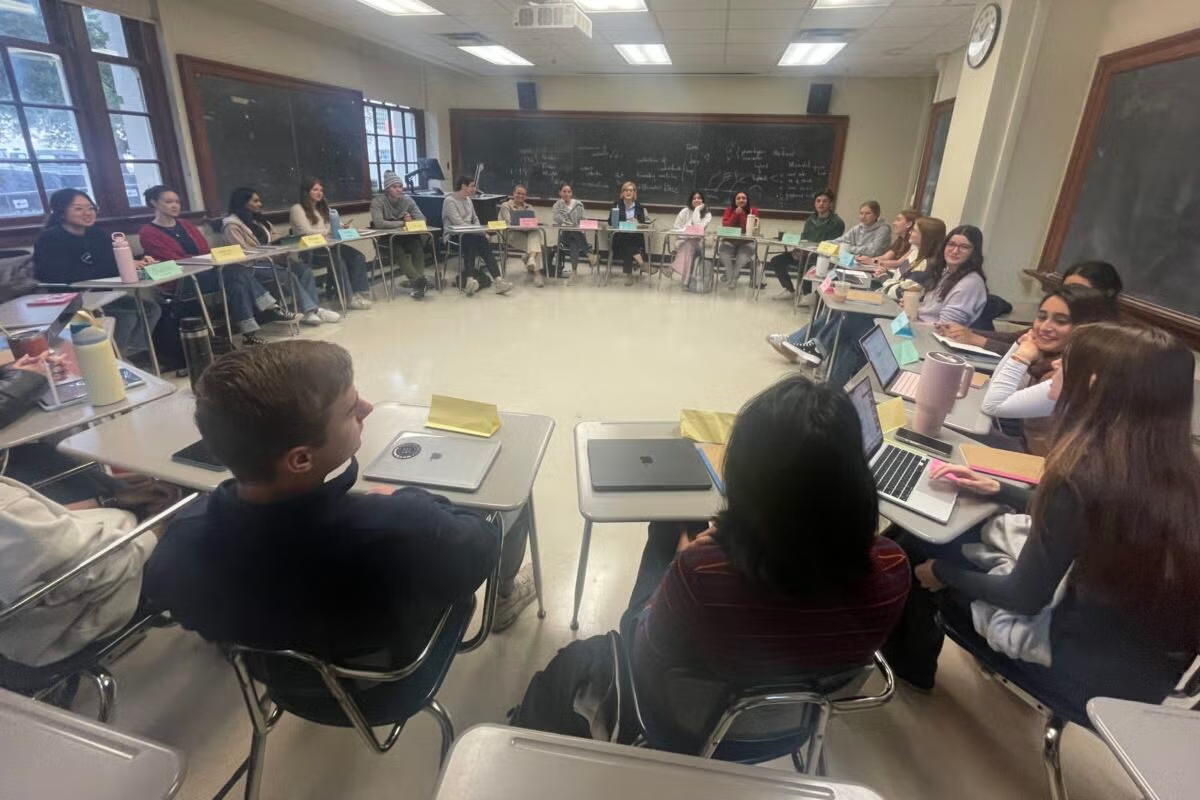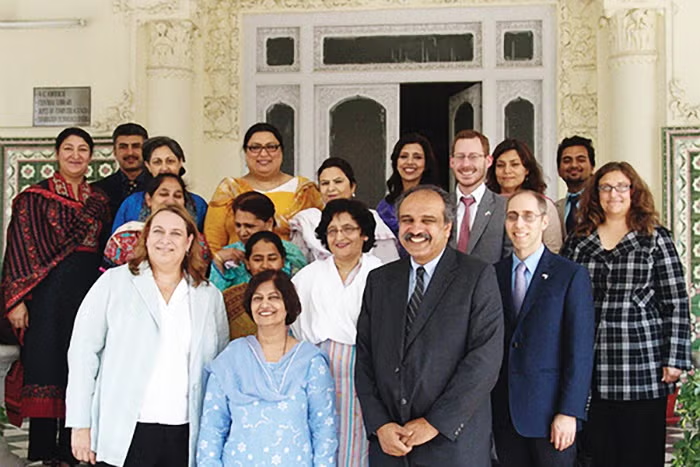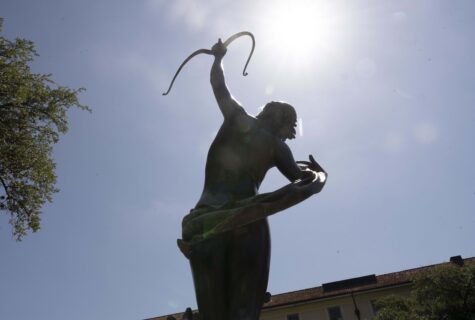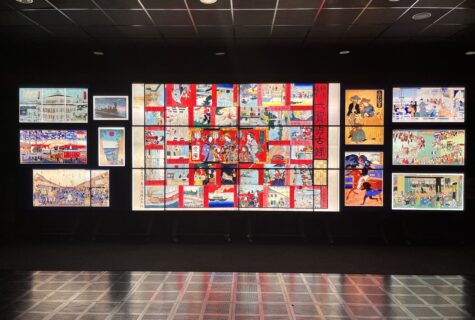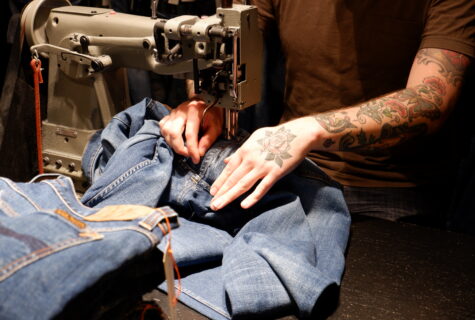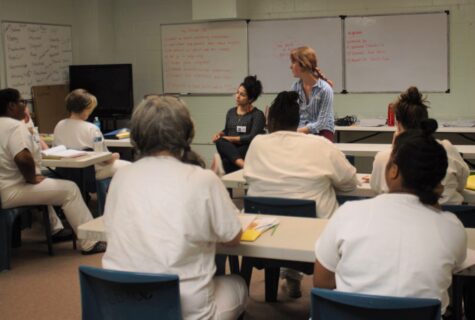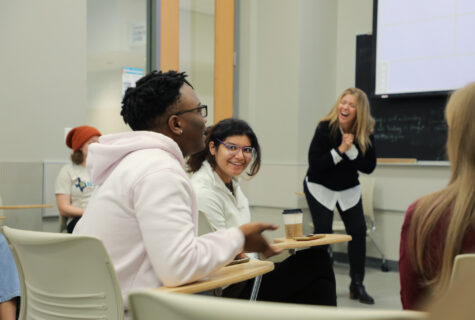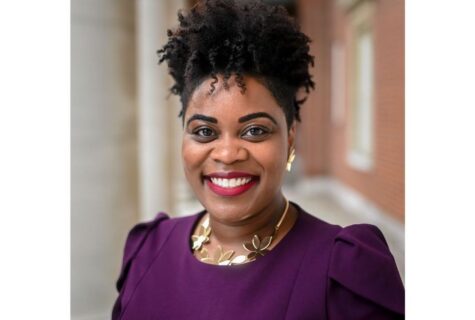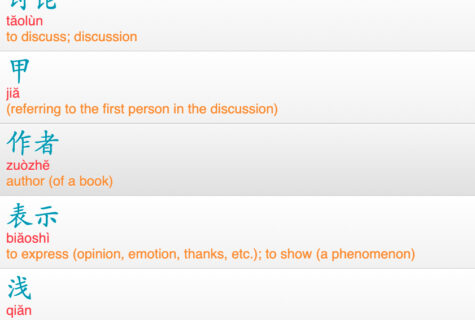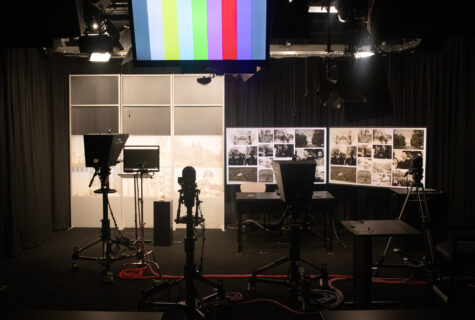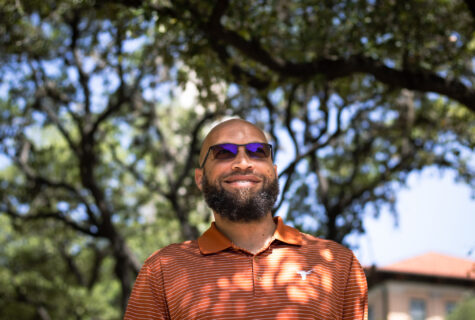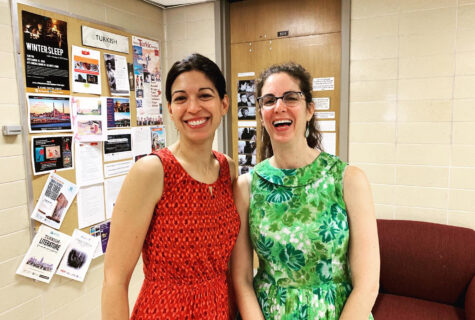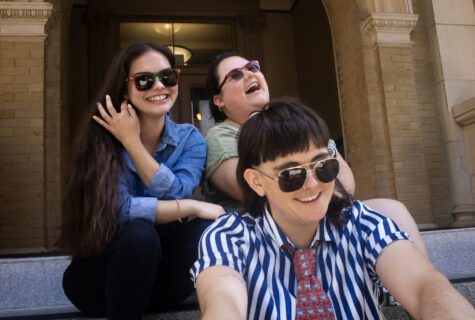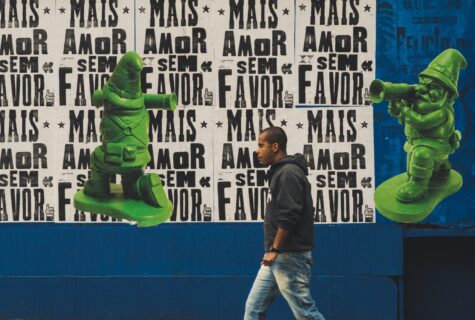Chad Seales explores the parallels between AI and religion
Teaching & Learning
More Than a Language
UT’s Yoruba studies program goes beyond grammar to connect students with Yoruba culture in West Africa and the diaspora
Blooming Where You’re Planted
A U.S. Marine’s Journey from São Paulo to UT Austin
Snorkeling for Solutions
The Great Barrier Reef May Term program combines natural wonder and policy studies
A Guide to Cancerland
Sociologist and survivor Steph Osbakken draws on personal experience to teach students about the social and cultural landscape of cancer
Anthropology Professor Advocates for Fulbright Pakistan Scholars
Last year Kamran Ali welcomed 117 Fulbright Scholars from Pakistan to the Forty Acres
Law, Societies, and Justice for All
UT’s Initiative for Law, Societies, and Justice unites scholars, researchers, students, and community organizers in the pursuit of a more equitable criminal justice system
Where the Great Books Live
The Jefferson Center for Core Texts and Ideas relies on the great books to prepare its students for the future
Hunting Oppenheimer
Bruce Hunt regularly teaches a course at UT on the “History of the Atomic Bomb” — and he has a few quibbles with Christopher Nolan’s latest film
Falling for Vertigo
Students in Doug Bruster’s “‘Vertigo’ In Context” course take film analysis to new heights.
The Art of Mapping History
ClioVis is reshaping — literally — how relationships between historical events are visualized.
Gamifying Japanese History and Literature with JapanLab
From video games to virtual reality, JapanLab is bringing history into the 21st century and beyond.
Finding Humility Along the Supply Chain
Sharmila Rudrappa brings students from Texas to Sweden to India to explore the realities behind “ethical fashion.”
A Classics Podcast Gets Greek Greats Onto Your Phone
The idea for Deborah Beck’s podcast burst forth from her head like the goddess Athena from the head of Zeus. That moment of inspiration has turned into three seasons and counting of “Musings in Greek Literature,” a podcast on classical Greek texts hosted by Beck and a rotating cast of her advanced undergraduate students.
Bringing the Liberal Arts to Texas Prisons
The Texas Prison Education Initiative offers college-credit courses to incarcerated students in the Austin area. The courses, which span subjects from physics to philosophy, are taught by volunteer instructors and offered at no cost to students. Since it began in 2018, the program has served some 230 students in over 400 classes. But there’s still far more demand than they can meet.
Signs of Community
Deborah White and Michael Wynne see themselves and the ASL program they are building at UT Austin as about more than just language. They are a bridge between the Deaf and hearing communities. Their identity as part of the Deaf community is integral to the way that they teach American Sign Language, which is just as much about understanding Deaf culture as it is about vocabulary, syntax, and grammar.
Black Health Matters
Christy Erving has taught about the sociology of health in general for several years, but it was the realities of life during COVID that steered her to design her new course, “Black Health Matters,” specifically focused on the health of Black Americans. It debuts this fall.
Spreading the Fever: Arianna Avalle wants everyone to read Elena Ferrante
One of the French and Italian department’s Italian Civilization courses, Avalle’s class gives students a tour of Ferrante’s “My Brilliant Friend” and its Neapolitan context. But more importantly, Avalle says, it introduces students to a new way of thinking about cultures outside their own.
The Rise of Open Source Foreign Language Learning
In 2010, with funding from the U.S. Department of Education, Carl Blyth launched COERLL. One of 16 National Foreign Language Resource Centers (LRCs) funded by the federal government, COERLL’s mission is to produce and disseminate foreign language educational material that was free for anyone to use, remix, repurpose, and redistribute.
Beyond Zoom: The College of Liberal Arts is reimagining online teaching
Since it began producing online courses, LAITS has worked with seven colleges and 45 departments, resulting in more than 135 unique undergraduate courses and more than 20 master’s degree courses. They have served more than 190,000 students and provided more than 570,00 credit hours.
The Turnaround: COLA’s UTurn program helps struggling students get back on track
UTurn offers academic coaching, peer mentoring, and a dedicated space where students in the program can study, socialize, and support each other. “Most 18–20-year-olds have been almost programmed to think just about getting an A,” says program coordinator Ben Burnett. “And I’m trying to program them to think about themselves and what is the best path for them.”
Peace in the Middle East…ern Studies Department
Over 20 years ago, UT Austin’s Department of Middle Eastern Studies (MES) was characterized by intense volatility and internal conflict. After re-structuring itself around the principles of transparency, democracy, and egalitarianism, the department is now a bastion of support, respect, and cheerful collegiality.
The Taylor Swift Songbook Course Swiftly Makes Over English 314
Professor of English Elizabeth Scala teaches a lower-division course in Liberal Arts Honors, E314L: “Literary Contests and Contexts,” nearly every fall. For fall 2022, Scala decided to structure the course around an unusual literary figure: Taylor Swift.
Keeping it in the (Liberal Arts) Family
All three of the front-desk staff members in the Dean’s Office in Gebauer Building are alumnae of the Cellege of Liberal Arts. We spoke to Kaley Aguero, Richelle King, and Kacie Vanecek about their past, present, and future.
Teaching Brazilian Portuguese to the World
It is not a stretch to say that Orlando Kelm, an associate professor of Spanish and Portuguese at The University of Texas at Austin, is one of the most popular teachers of Brazilian Portuguese in the world. This is thanks to Brazilpod, a collection of podcasts, videos, transcripts, and blogs on Brazilian Portuguese that Kelm and his colleagues have been producing over the past two decades.
